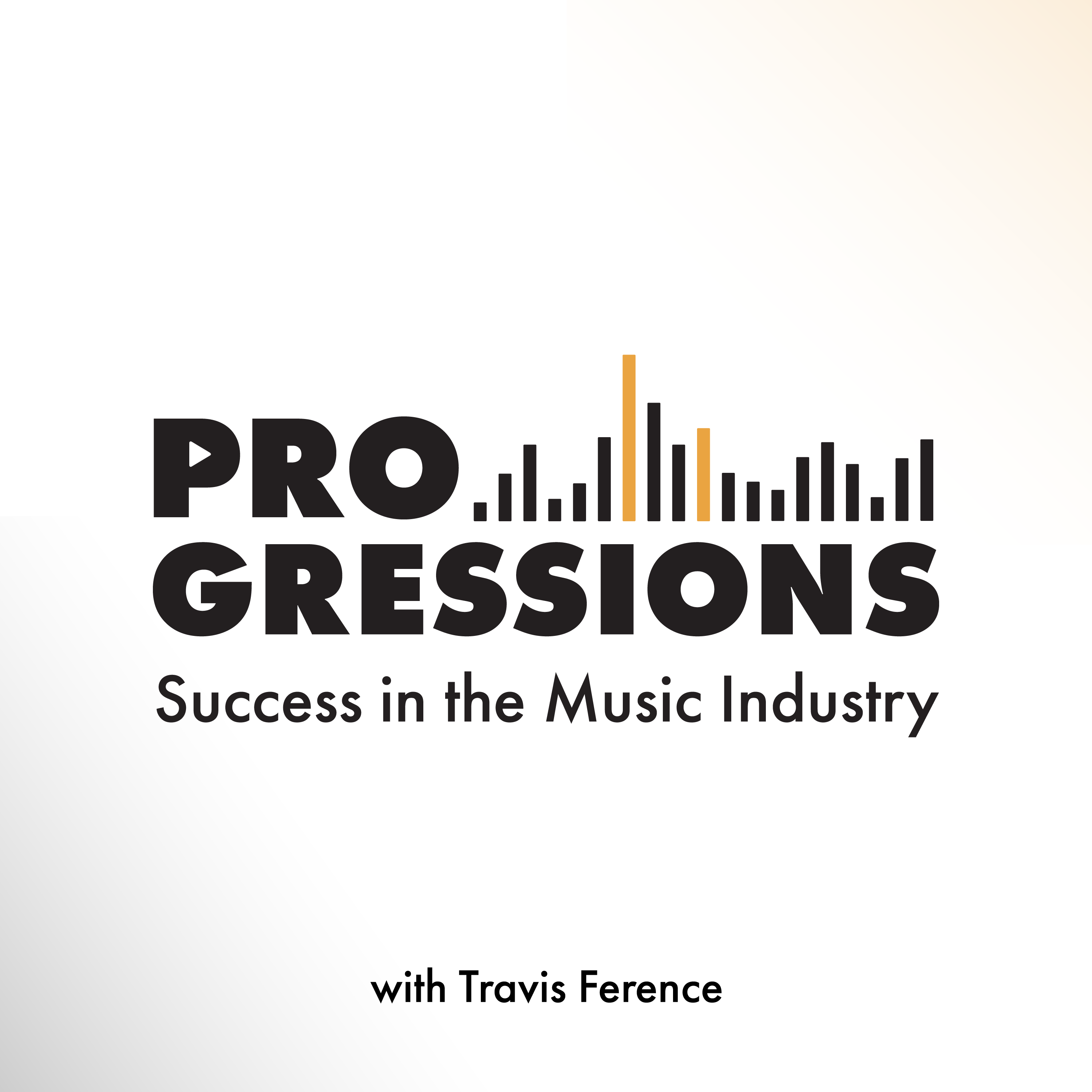Music School Survival Guide: 5 Tips for a Successful Journey
Want to get the most out of your music school experience? Set yourself up for success this fall (and for the rest of your career) with these five tips.
This episode was originally post on the Progressions YouTube Channel. Be sure to subscribe for the latest there!
⬇️ FREE 2025 PLANNING WORKSHOP ⬇️
https://www.travisference.com/2025plan
📺 WATCH THE SHOW ON YOUTUBE 📺
https://www.youtube.com/@progressionspod
Connect with Me:
📬 Newsletter: https://www.travisference.com/subscribe
📸 Instagram: https://www.instagram.com/progressionspod
🎵TikTok: https://tiktok.com/@progressionspod
🐦 Twitter: https://twitter.com/progressionspod
🌐 Website: https://www.travisference.com/
🙏 Leave a Review or Rating 🙏
Apple: https://www.progressionspodcast.com/apple
Spotify: https://www.progressionspodcast.com/spotify
Credits:
Host: Travis Ference
Editor: Travis Ference
Theme Music: inter.ference
Transcript
Are you dreaming of a career in music and thinking about enrolling in music school?
Speaker:Or perhaps you've already secured a spot at one of the top institutions for the
Speaker:fall. I want to share with you five things I wish I knew before I
Speaker:went to music school. What's up, y'all? I'm Travis Fence, a Grammy nominated recording engineer
Speaker:in Mixer. And on this channel, I've set out to help industry newcomers and
Speaker:veterans alike create the career they've always wanted and
Speaker:hopefully skip some of the mistakes I've made along the way. Going to college
Speaker:is big deal if you're in the process of making that decision right now.
Speaker:I feel your pain. I know it can be daunting. I've been there. It was
Speaker:like 20 years ago, but I was there. Ultimately, I decided to go to
Speaker:Berkeley College Music and study music production and engineering. I spent four years there
Speaker:before moving to Los Angeles and starting my career at Capital Studios. When I reflect
Speaker:back on my experience, there are definitely some things that I think are invaluable to
Speaker:know before you step into one of these top music schools. And I guarantee you
Speaker:they are not in the admissions brochure and they are not on the website. So
Speaker:here we go. Number one, you're not going to be the best, and that's okay.
Speaker:If you're watching this, it's likely you're a high school student considering college. It's also
Speaker:highly likely that you are the best musician in your school or even your
Speaker:town. This is no longer going to be the case when you land at one
Speaker:of these top schools. So take this reality check to heart now so you're not
Speaker:blindsided by it later. When I went to Berkeley, I was immediately hit by the
Speaker:fact that pretty much everybody there was a better musician than me in one way
Speaker:or another. A lot of these top schools have extremely high first year dropout rates,
Speaker:and I think that's due to the fact that a lot of people can't cope
Speaker:with no longer being the best at their craft. There's always going to be somebody
Speaker:better than you. Don't get discouraged by it. Instead, be inspired to get better.
Speaker:Number two, music school is the beginning of your education, not
Speaker:the end of it. A lot of people leave these prestigious universities thinking they have
Speaker:everything they need to have a successful career, and this couldn't be any more
Speaker:wrong. College will give you a baseline set of skills and knowledge that you then
Speaker:have to take to the real world to apply and develop. And remember, these educational
Speaker:institutions, as good as they are, can only simulate the real world to a certain
Speaker:extent, because how the music industry actually works is not always going to align
Speaker:with the best way to train you for it. So if you want to have
Speaker:a long career in this industry, you have got to commit to being a lifelong
Speaker:learner. Number three, you will get out of music school what you put in. Now,
Speaker:I know that sounds cliche, but there's really no better way to put it. My
Speaker:experience is that it is not that hard to graduate a music school with a
Speaker:high GPA. And if you're currently a high school student, your educational experience has
Speaker:put a hefty weight on your actual grades. Unfortunately, once you go to
Speaker:college, especially in art school, grades are going to give you zero bearing on whether
Speaker:you actually learned anything. I'm not telling you to fail. What I'm telling you is
Speaker:that what you learn in music school is significantly influenced by
Speaker:how immersed in the community and the experience you are. You got to be jamming
Speaker:with other students, writing songs, going to shows, and taking advantage
Speaker:of all the access to technology and guest lectures. Music is not
Speaker:something you can just memorize and recite. Music is something that needs to be
Speaker:experienced. Next up, attending music school is as much about the
Speaker:people as it is about the knowledge. If you're going to attend a college where
Speaker:you're going to be surrounded by like minded individuals with similar career aspirations,
Speaker:you would be doing yourself a huge injustice by not starting to build your
Speaker:network. Now, I'll use myself as an example. All of my closest friends and my
Speaker:core group of fellow engineers here in Los Angeles are all people I went to
Speaker:Berkeley with. I got my job at Capital Studios because of somebody I met at
Speaker:Berkeley, and a surprising number of people I run into on gigs are people that
Speaker:I've either met or known of because of my time at school. The importance of
Speaker:your network has come up on every single interview I've done for the podcast,
Speaker:regardless of what part of the industry the guest is from. So do not waste
Speaker:this opportunity to start your network at school. Plus, it
Speaker:may or may not involve some partying last up on the list, but maybe the
Speaker:most important. Music is your passion, but it's about to become your
Speaker:job. When your livelihood is based on something, it can be easy to start feeling
Speaker:the pressure, and it can go from being very fun to very workLIKE.
Speaker:And this is an unfortunate reality that everybody in the music industry has to deal
Speaker:with eventually. So remember to always set aside time to keep that passion
Speaker:alive. Make some music for yourself or explore some new sounds. Whatever it
Speaker:is that makes music fun for you, be sure that you're doing that. If you
Speaker:want to get more of a jump start in your career, then check out this
Speaker:video about how to turn your mistakes into opportunities for growth. Also, don't forget to
Speaker:check out the progression success of the Music Industry podcast, available here on this


